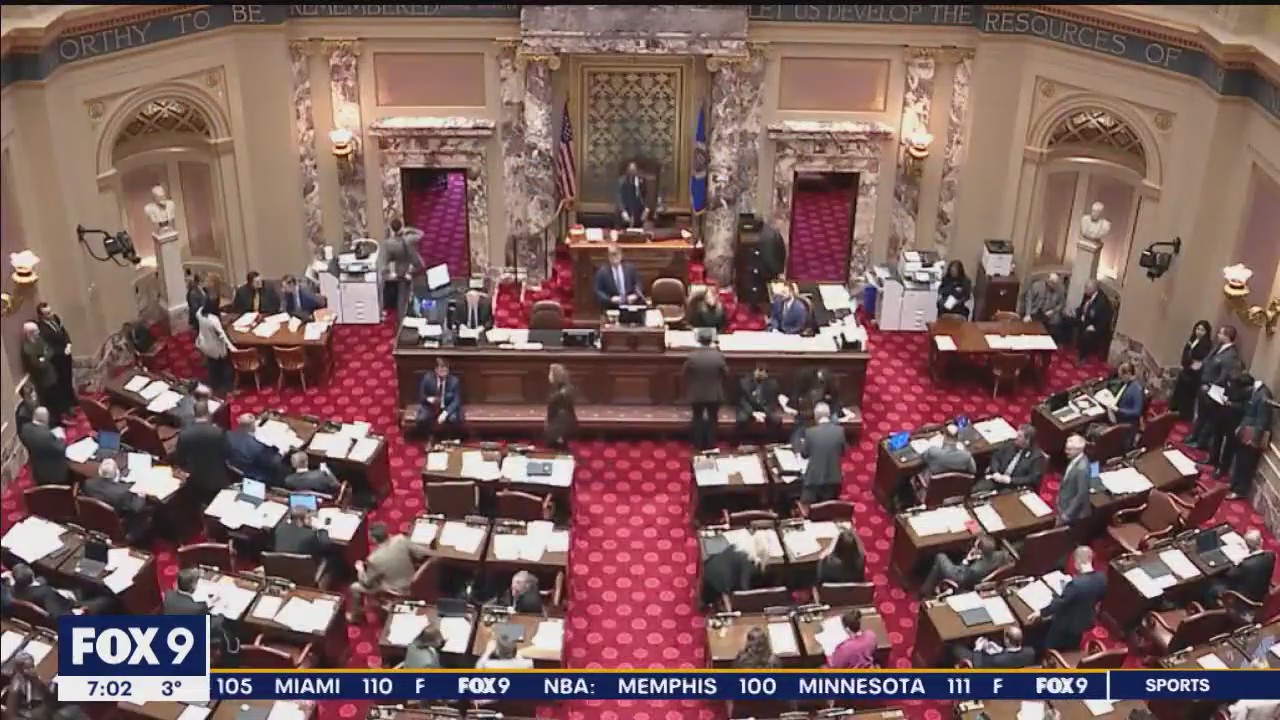Minnesota Senate approves abortion rights bill

Minnesota Senate votes to guarantee abortion rights
The Senate debated for 15 hours on the Protect Reproductive Options (PRO) Act and wrapped up around 3 a.m. on Saturday before senators voted 34-33 to pass the bill. Governor Tim Walz is expected to sign it next week.
ST. PAUL, Minn. (FOX 9) - The Minnesota Senate voted to pass the reproductive rights bills early Saturday morning, and it's now on the way to be signed by the governor.
The Senate debated for 15 hours on the Protect Reproductive Options (PRO) Act and wrapped up around 3 a.m. before senators voted 34-33 to pass the bill. Since the House passed the abortion rights bill last week on a 69-65 vote, it will now head to Gov. Tim Walz to be signed into law.
"Here in Minnesota, we hold dear that we all have a fundamental right to make autonomous decisions about our own reproductive healthcare," said Senator Jen McEwen (DFL — Duluth), the lead author of the legislation. "Today, the Minnesota Senate demonstrated that we will not simply put our faith in individual judges to uphold our rights and freedoms – we will also enshrine those rights into state statute. Minnesotans now have an affirmative right to make their own decisions about reproductive health care. I’m proud to have taken this step today, and we will continue to advance legislation to ensure Minnesotans have meaningful access to the care they need."
Related stories: Abortion in Minnesota: Senate nears vote to put abortion protections in law
Senate Republicans called the bill "extreme" and proposed several amendments, including a ban on third-trimester abortion, prohibiting abortions due to down syndrome, and requiring parental notification, which were all struck down.
"Today Minnesota Senate Republicans demonstrated, through a series of good faith amendments, the significant and devastating shortcomings of this bill. I’m very disappointed our amendments to restrict late-term, saline, and dismemberment abortions, protect minors from dangerous abusers, and defend the lives of babies with Down syndrome were all rejected by every Democrat in the Senate. It really is the most extreme abortion bill, not just in the state, but in the world," said Senate Minority Leader Mark Johnson (R-East Grand Forks) in a statement.
Abortion is already a protected right in Minnesota because of an 1995 state Supreme Court decision in Doe v. Gomez. Democrats see a law change as a safeguard if the court ever reverses itself.

